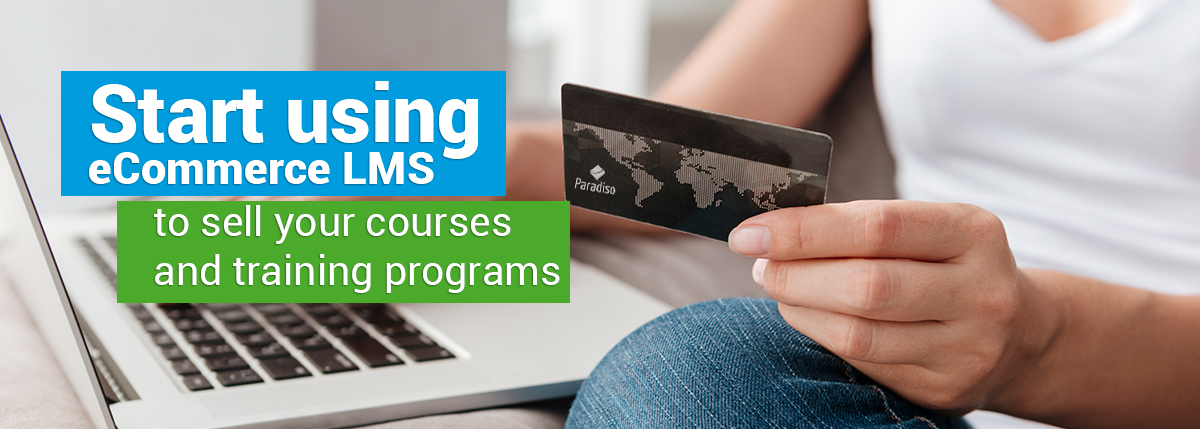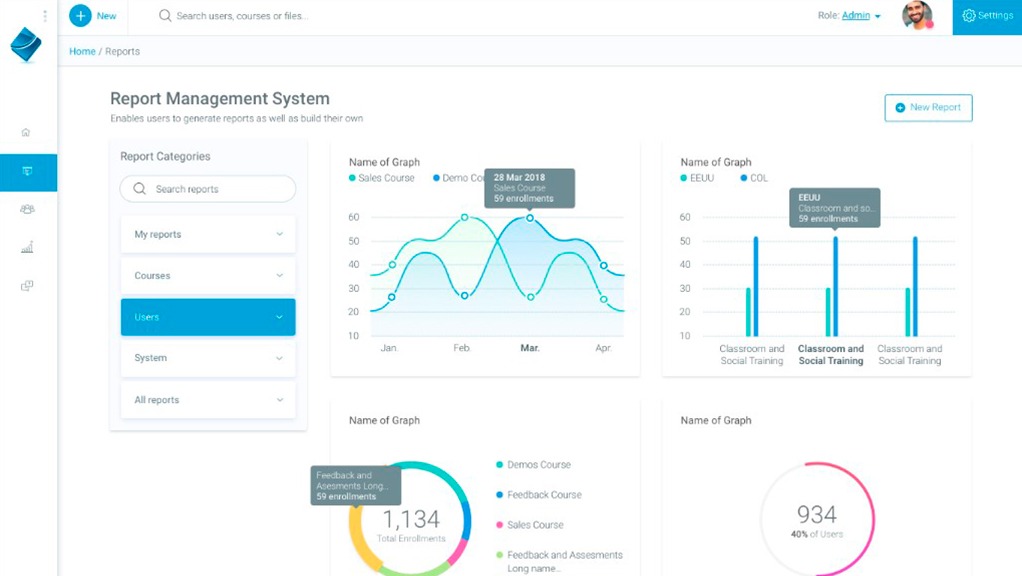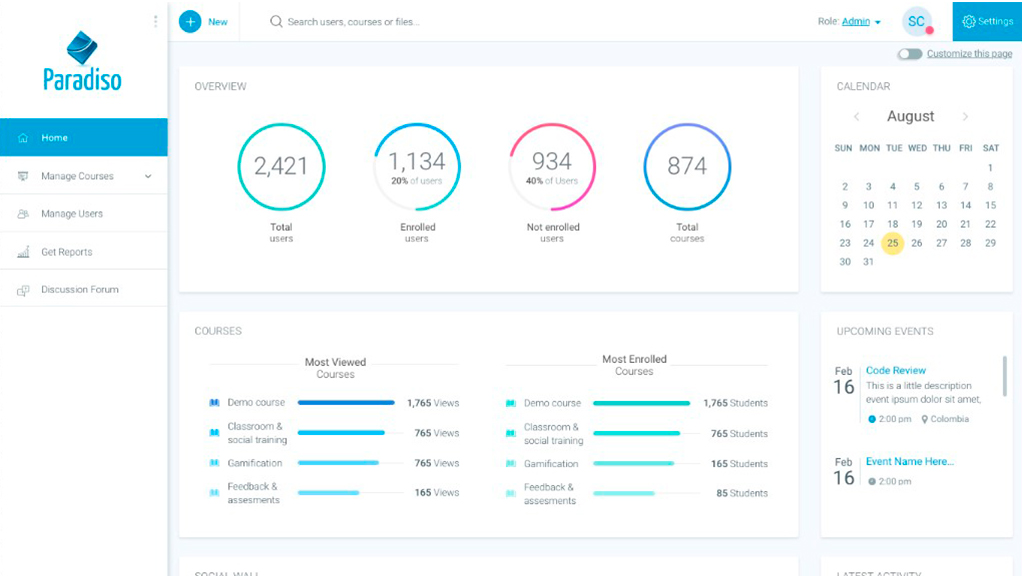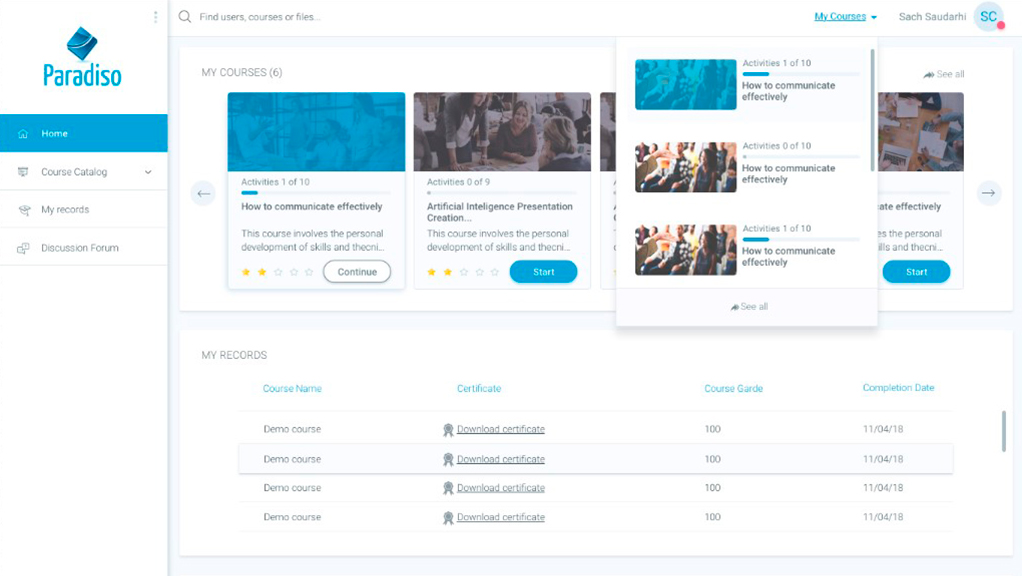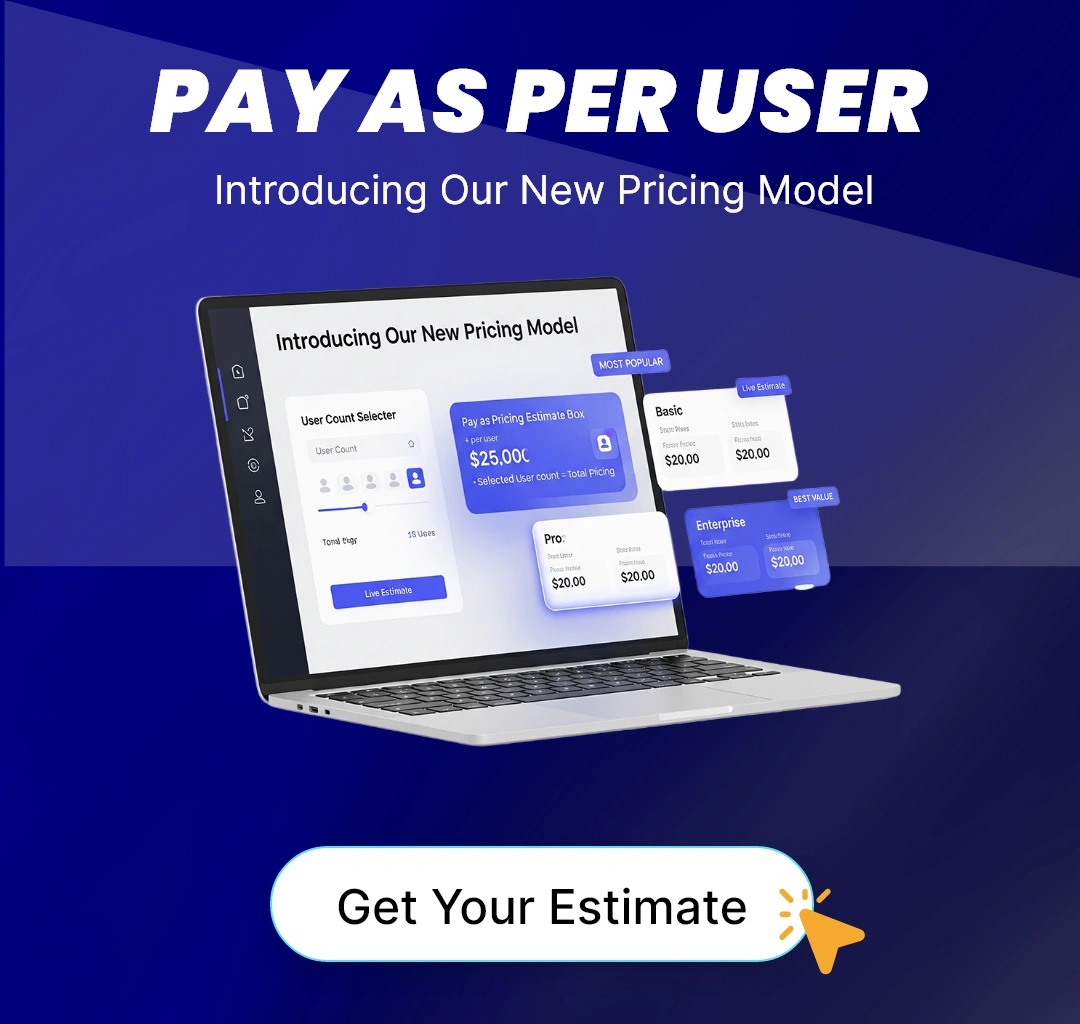Selling online courses could be easier than you think! To be successful, not only a good reputation must be built but also it is necessary to offer a quality product. If you do not have an appropriate channel to show your product and sell it, your efforts may be overshadowed by lack of income. The implementation of an eCommerce LMS is the most effective tool to sell your eLearning content online.
With an LMS with eCommerce, you can promote and sell your virtual courses with easier than ever. The LMS eCommerce integration will give your users the possibility of accessing the Course catalog, they can purchase, register, and auto-enroll to start the sessions within the LMS.
Facilitating processes and making them more and more agile with the help of technology will generate a great impact on your company. Streamlining the enrolment and login processes must be key goals for companies as this can increase courses participation, engagement and of course revenue.
eCommerce LMS integration is customization work offered by many market-leading LMSs, and the extent of the integration depends strongly on the needs of the individual organization. It depends on the quantity and breadth of your products, the size of the company and how many bells and whistles you want to be included in the package. At Paradiso Solutions we work with you, the client, to determine exactly what the needs are and how we can best build the integration for the specific use case to allow you to sell courses online. All of this thanks, in great part to Single Sign-On (SSO) – which means you only need to enter one set of login details for both the eCommerce platform and the LMS – going from purchasing to taking the course is now a piece of cake.

